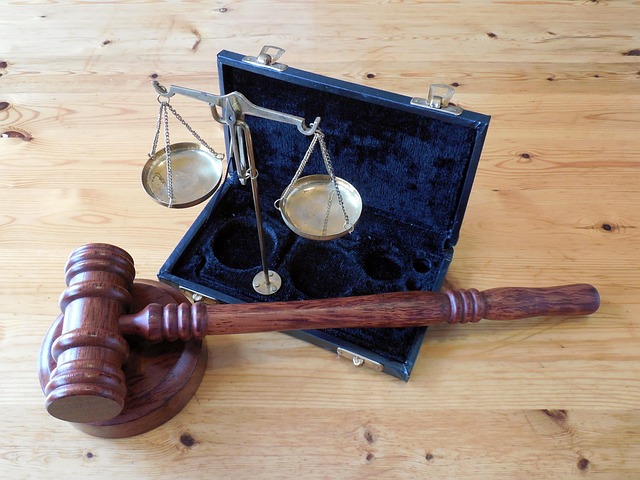Regulatory agencies, like the RFRA, are crucial for global fairness in wireless communication. They enforce laws on interference, spectrum management, and device safety, scrutinize cross-border Mergers and Acquisitions, especially under Global Antitrust Regulations. This is vital for businesses' international operations, white-collar defense, and consumer protection. RFRA investigates potential anti-competitive practices in Cross-Border Mergers, ensuring fair markets worldwide. Effective defense requires robust legal arguments, compliance programs, and transparent documentation to balance corporate interests with antitrust goals. The ultimate aim is to maintain global fair competition, minimize indictments, and build stakeholder trust.
RF Regulatory Agency investigations play a pivotal role in maintaining fair competition globally. This article delves into the intricate world of these agencies, focusing on their key roles in antitrust enforcement and cross-border mergers. We explore how global antitrust regulations trigger investigations, with special emphasis on evidence collection and legal procedures. Additionally, we discuss strategies for resolving violations and preventing future transgressions, underscoring the importance of compliance in today’s interconnected business landscape.
- Understanding RF Regulatory Agency Roles
- Triggering Antitrust Investigations Globally
- Cross-Border Mergers Under Scrutiny
- Evidence Collection and Legal Procedures
- Resolving and Preventing Future Violations
Understanding RF Regulatory Agency Roles

Regulatory agencies play a pivotal role in ensuring fair practices within the radio frequency (RF) spectrum and related technologies. These agencies are responsible for enforcing laws and regulations that govern the use of wireless communications, including issues like interference, spectrum allocation, and device safety. Their duties often extend to reviewing and approving cross-border mergers and acquisitions, especially when they involve global antitrust regulations. This is particularly crucial in today’s interconnected world where businesses operate across borders seamlessly.
Understanding these agency roles is essential for companies involved in white-collar defense, ensuring compliance with both local and international laws. By adhering to regulatory guidelines, firms can avoid indictment and maintain the trust of their clients. These agencies act as guardians of fair competition and consumer protection, particularly when dealing with complex cross-border transactions, including mergers that may impact global antitrust regulations.
Triggering Antitrust Investigations Globally

When it comes to triggering antitrust investigations globally, RF Regulatory Agency (RFRA) plays a pivotal role in navigating complex landscapes of international trade and competition. RFRA’s actions often set the stage for broader scrutiny, especially when it comes to cross-border mergers and acquisitions involving multinational corporations. These agencies have the authority to delve into potential anti-competitive practices that may not be immediately apparent, ensuring fair markets and consumer protection across the country.
Global antitrust regulations are designed to prevent the formation of monopolies and restrict competitive environments, thereby fostering a level playing field for businesses worldwide. As corporations expand their operations across borders, RFRA’s vigilance in monitoring white-collar and economic crimes becomes even more critical. This is especially true for cross-border mergers, where companies may attempt to leverage market power or engage in anti-competitive behaviors that harm consumers and stifle innovation. By staying vigilant, RFRA contributes to the well-being of both the philanthropic and political communities at large.
Cross-Border Mergers Under Scrutiny

In the realm of global business, cross-border mergers and acquisitions have become increasingly common, especially with the borderless nature of today’s digital era. However, these transactions often fall under the microscope of stringent Global Antitrust Regulations to ensure fair market practices and protect consumers. RF Regulatory Agency investigations into cross-border mergers are meticulous processes designed to uncover potential anti-competitive behaviors, such as market dominance or the suppression of competition through vertical integration.
White collar defense strategies become pivotal here, as companies must navigate these regulatory hurdles with careful consideration. Achieving extraordinary results in these cases often involves robust legal arguments, meticulous compliance programs, and transparent documentation. The respective business interests must be balanced against the broader economic goals of maintaining a competitive market landscape, ensuring that mergers do not lead to monopolies or restrict consumer choice.
Evidence Collection and Legal Procedures

In RF Regulatory Agency investigations, evidence collection is a meticulous process designed to uncover any violations of global antitrust regulations, especially in the context of cross-border mergers. Agencies employ sophisticated tools and techniques to gather digital evidence, ensuring it’s admissible in court. This includes detailed documentation, financial records, internal communications, and market data, all meticulously analyzed for potential anti-competitive behaviors. The legal procedures that follow are stringent, with strict adherence to international laws and standards, aiming to achieve extraordinary results in maintaining fair competition globally.
Throughout the investigative and enforcement process, agencies must navigate complex jurisdictional issues, especially when dealing with cross-border mergers. They employ a comprehensive understanding of both domestic and international laws to ensure fairness and consistency. By adhering to these procedures, regulatory bodies strive to avoid indictment and its potential consequences, while still upholding the integrity of global antitrust regulations.
Resolving and Preventing Future Violations

In resolving RF Regulatory Agency investigations, one key aspect is preventing future violations. Global Antitrust Regulations play a crucial role in ensuring fair competition across borders, particularly when considering Cross-Border Mergers. These regulations help maintain a level playing field by scrutinizing mergers and acquisitions that could lead to monopolistic practices or hinder market entry.
By thoroughly investigating such deals, RF Regulatory Agencies can identify potential antitrust violations before they occur. This proactive approach not only protects consumers but also fosters trust within the philanthropic and political communities. Furthermore, clear guidelines and penalties derived from these investigations serve as deterrents, encouraging companies to adhere to global standards and practice transparent business conduct across the country.
RF Regulatory Agency investigations play a vital role in ensuring fair competition within the global economy, particularly regarding cross-border mergers. By understanding these agencies’ roles and following evidence collection procedures, companies can navigate complex antitrust laws like the Global Antitrust Regulations. Resolving violations promptly and implementing preventive measures are key to fostering a robust and competitive business landscape, especially when dealing with international transactions. This comprehensive approach helps maintain market integrity while facilitating cross-border trade.






